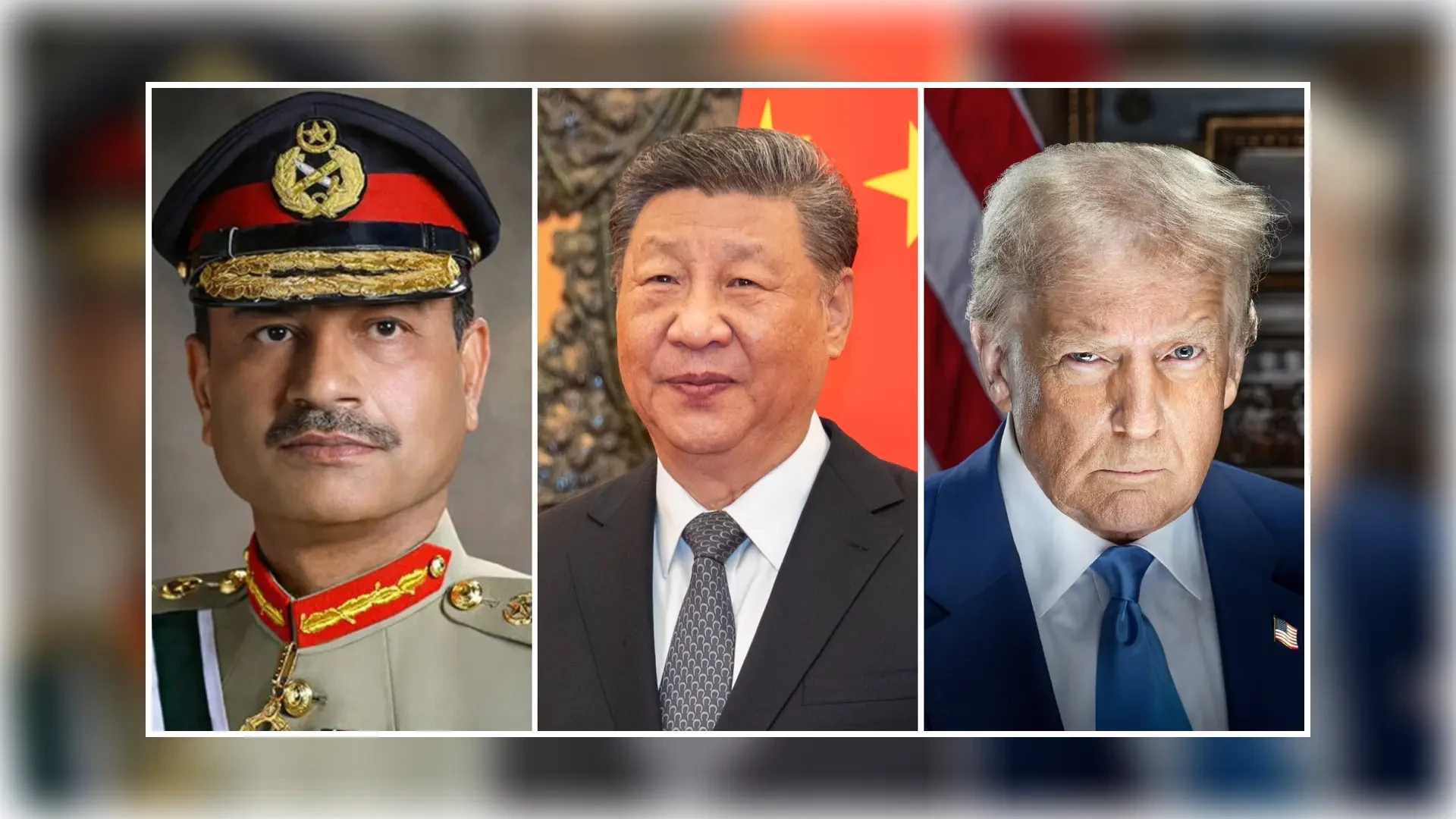In his first public remarks since India’s Operation Sindoor to avenge the Pahalgam terror attack, Pakistani military chief Gen Asim Munir made provocative remarks justifying terrorism targeting India.
While the general tone of his remarks is nothing new, one must see it in the context of two related events: How he was hosted by US President Trump, who praised him in public just days after India and Pakistan ended the war; and how China helped Pakistan in thwarting a mention of Pahalgam in the recent defence ministers’ meeting of Shanghai Cooperation Organisation (SCO). Let us take a look at the events that followed the end of the three-day war between India and Pakistan in May, to understand what’s giving fuel to Gen Munir to make such statements.
But first, what exactly did Asim Munir say?
In his remarks over the weekend, Munir raked up the Kashmir issue, and reiterated Pakistan’s unwavering support for terrorism in the region, which he termed a ‘legitimate struggle’.
“We can never miss to mention the great sacrifice made by our Kashmiri brethren…we stand firm with Kashmiri people for their right of self-determination for the resolution of the Kashmir dispute…and aspiration of the people of Kashmir. What India tends to term as terrorism is in fact the legitimate struggle as per international convention,” he said.
“Those who endeavoured to subdue the will of Kashmiri people and sought conflict elimination instead of resolution have made it more relevant and pronounced through their own action,” he added.
How Asim Munir got encouragement from Trump
Munir’s remarks should be seen in the context of two important developments vis-à-vis the US. The first is Pakistan’s continued insistence that Donald Trump helped end the war, for which the US president himself claimed credit several times, and Pakistan endorsed him for a Nobel Peace Prize. And the second is Trump hosting Munir for lunch on June 18. At their meeting, Trump said of Munir: “This man was extremely influential in stopping it [the war] from the Pakistani side, and PM [Indian Prime Minister Narendra] Modi from the Indian side.”
“They were going at it, and both are nuclear countries. I stopped a war between two major nations,” he said, once again claiming credit for ending the war.
India has firmly rejected this stance, stressing that the Operation Sindoor stopped after bilateral discussions.
Munir is emboldened by SCO joint statement that did not include Pahalgam
The Pahalgam terror attack by Pakistan-trained terrorists killed 26 people on April 22, mostly Indian tourists who were shot down, based on their Hindu religion. After Operation Sindoor to avenge the attacks, India made a diplomatic outreach across continents to make its stance clear on terrorism and on the end of the war.
But India basically got stabbed in the back at the SCO defence ministers’ meeting in China on June 26. The joint statement of the meeting omitted mention of Pahalgam, and did not address cross-border terrorism adequately. The Indian side, led by Defence Minister Rajnath Singh, attributed this to objections by fellow SCO member Pakistan, and noted that China, the host of the meeting in Qingdao, was also the SCO chair.
India refused to sign, and the lack of consensus meant that no joint communique was issued.
Amid India’s protestations, one thing became clear: President Xi Jinping’s China has allowed Pakistan’s views to prevail at the SCO.
Instead, the statement included references to militant activities in Pakistan’s Balochistan province, such as the Jaffar Express hijacking by the Balochistan Liberation Army on March 11.
India, rightfully so, saw this as an effort by Pakistan, backed by China, to take away attention from Pakistan-fomented cross-border terrorism.
SCO statement tried to include Balochistan, Munir played it up
Seemingly emboldened by this, Munir made a mention about Balochistan in his weekend remarks, thus essentially twisting the narrative.
He said in the context of recent attacks in Balochistan: “If the 1.3-million strong Indian Army can’t intimidate us and they cannot quash us, these terrorists can subdue the armed forces of Pakistan? You 1,500 people say you will take away [Balochoatan], you will see that we will beat these terrorists very soon.”
A dangerous attempt to change the terrorism narrative
Clearly, Pakistan is trying to turn the story upside down, as reflected in Munir’s invective: In his mind, Pahalgam didn’t happen. Terrorists sponsored and trained in Pakistan are ‘freedom fighters’. Only what’s happening in places like Balochistan is terrorism. This is a dangerous twisting of the narrative. And the words of actions of Trump and China, giving credence and tacit support to a man like Asim Munir, will have dire consequences for the peace and stability of the South Asian region.
